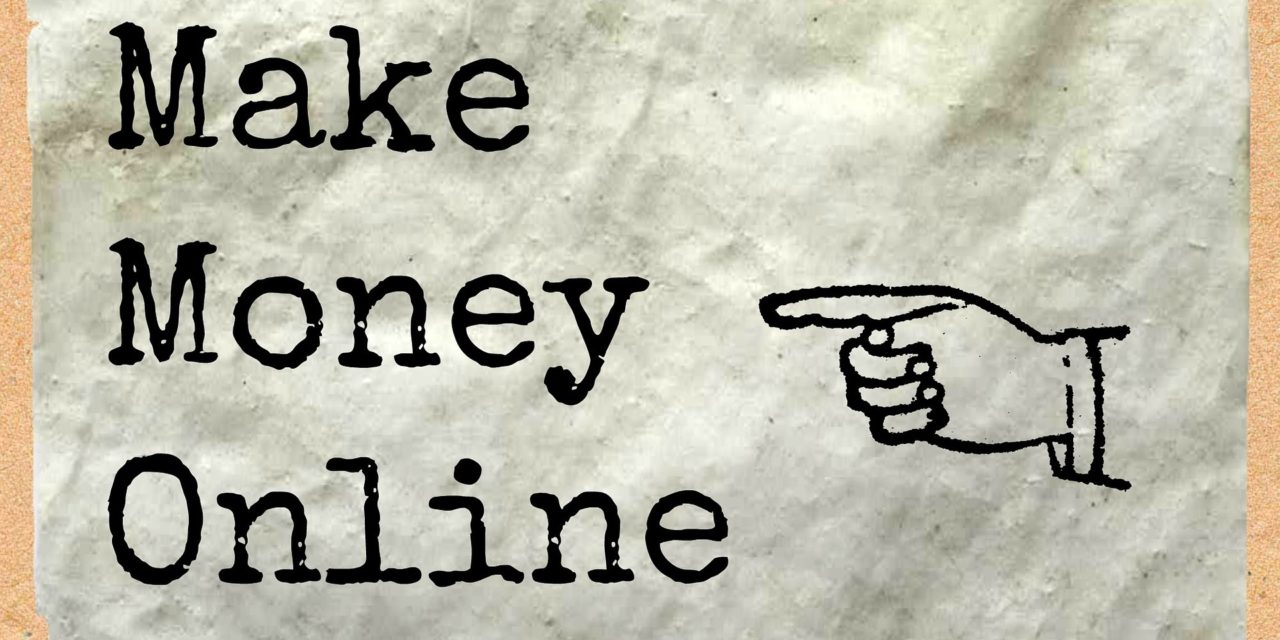Not that long ago, it was common to see notices pinned to lamp posts advertising untold riches to anyone willing to work just a few hours a week from home. Just call this number and watch the money roll in. I had a mate back in mid-1980s who was a sucker for a sales-pitch. At various times he sold miracle spark-plug boosters for your car, miracle radiator boosters for your heating, miracle protein supplements, endowment mortgages and Turkish holiday apartments.
And at one point he called one of the numbers on a card on a lamp post. It turned out that the way to make millions from home was to buy a book on ‘How to make millions from home’ by mail order from the company behind the advert.
So he bought the book for £9.99 and, in among a lot of waffle and diagrams, the essential piece of information seemed to be that the way to make money from home was to put cards on a lamp post advertising the opportunity to make money from home. When someone called you sold them a copy of the book at a massive mark-up, which you bought from the parent company at the top of the pyramid.
These days our lamp posts are bare as the get-rich-quick schemes move online. High-profile internet millionaires demonstrate that, with the right idea, an awful lot of commitment and a bit of luck, it can be done. A level below the millionaires are a sub-strata of influencers making something, if not quite as much as they’d like us to believe. And then, down one again is an even bigger group of smaller influencers getting product to test and doing an admirable (if not always trustworthy) marketing job for thousands of brands, while saving said brands many thousands of pounds in conventional marketing budgets.
The influencer thing is fascinating. These people, usually, self-proclaimed can apparently sway the opinions of their many thousands of followers. This apparent cult-like devotion means they would like you (insert your company here) to give them your products and services for free so they can put a picture of them and their cleavage enjoying it on their social media feeds and instantly persuade their presumably less-cleavaged audience to rush out and buy one.
There doesn’t appear to be any requirement for knowledge, research, consumer testing or anything other than a half-unzipped top and bad 70s porno-pouts required to exert this influence. Clearly there is something wrong with me because I prefer to make buying decisions based on completely different criteria.
Which is odd because in life, I am definitely an ‘Influencable’. One of the joys of being older is that I’ve met many fascinating people who influenced how I see the world and articulate my thoughts. Some of them are obvious – family, friends and colleagues. But also bosses, authors, artists and even my dogs, who I admire for their ability to absolutely take each second as it comes.
I can’t imagine a world where other people don’t influence on me. Funny then that none of those people mentioned above – not one – would have ever made the claim to be an influencer.
The biggest danger from the influencer culture though, as with much of social media is that it is largely unregulated and easy to manipulate. A friend of mine is a make-up artist and she sees hundreds of videos from beauty influencers reviewing all manner of miracle anti-ageing products. For the manufacturers this is gold dust because an influencer is ‘independent’ from the Advertising Standards Authority. It’s a ‘real-world’ user’s opinion, not an official advert and the influencer is free to repeat any unsubstantiated marketing claims that the maker might care to not-quite-directly drop into the messaging. So, their videos are packed with cod-science, dubious claims and a chirpy credibility from the ‘keeping-it-real’ influencer, while the manufacturer gets laser-guided marketing and enormous engagement with no difficult regulatory questions, for the tiniest fraction of the cost of a proper advertising campaign.
Few of these influencers are getting paid (or at least getting paid very much) and, the relatively low costs for the suppliers make it a seemingly harmless and an easy decision for the big businesses funding it. Apart, of course, from the disappointment when the miracle science turns out not to be quite as effective as you’d hoped. But in the beauty market most customers will it seems, believe pretty-much any-old Boswellox you tell them.
No one knows yet how long a career in influencing lasts or what comes next. And it seems that the really smart money to be made online is in selling other people the dream of how to make money online. No lamp post or pyramid required.
There are thousands of experts running online courses to teach you pretty much anything. Some are free and relying on the money from YouTube to pay the bills, others charge for their expertise, all of them promise the world and there are many, many potential customers looking for the secret to becoming the Next. Big. Thing.
I might be the only one who sees a similarity between these online experts and the adverts stuck to 1980s lampposts, but I feel for those who genuinely do have something worthy to sell online and find themselves lost in the mire of brash, shouty clickbait claims.
Social media allows businesses large or small to speak directly to people who are interested in what they do, directing said people to their websites, blogs or YouTube content. That’s an amazing opportunity – businesses no longer need to spend fortunes on magazine, TV or radio advertising…in theory. But to find and engage that audience they have to be prepared to do huge amounts of work themselves. And the basics of how marketing works.
Doing this stuff is, technically more simple than it has ever been, but being the most talented plumber or builder or artisan baker in your town doesn’t necessarily mean that you will be the most articulate, IT-savvy or grammatically correct. And having a website, blog or social media feed full of badly written mis-spelt, words with poor pictures will do your business more harm than good.
So, maybe what’s needed are ‘educators’, not influencers. People who can help those plumbers, bakers and decorators to communicate simply, clearly and engagingly with their potential customers so they can influence people they haven’t yet met to call them up and have their patio installed by you, Bob, not Bert the Builder.
Hopefully, they’ll have more to offer than just a pout and half a pound of wobbly spray-tanned flesh.







